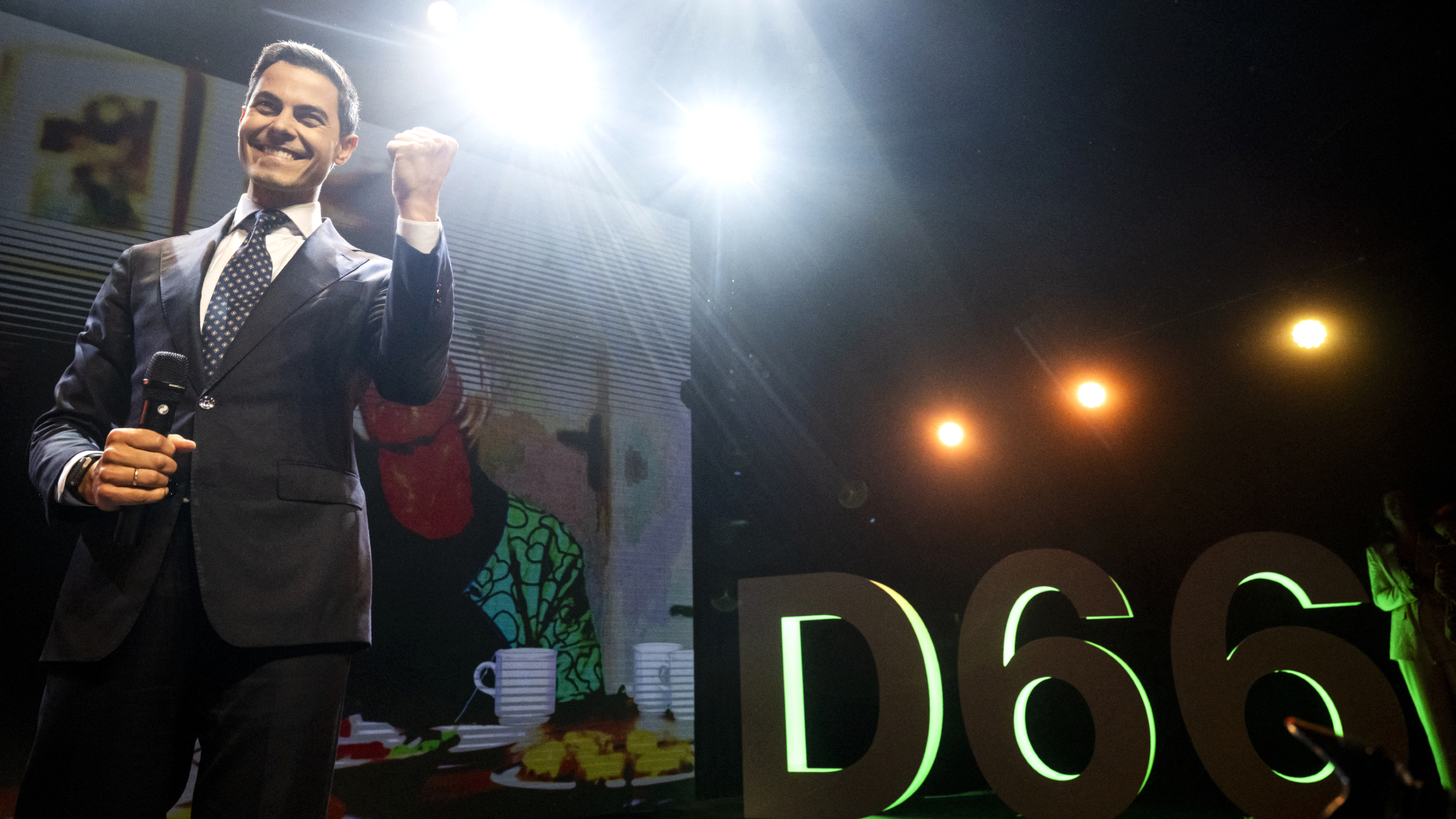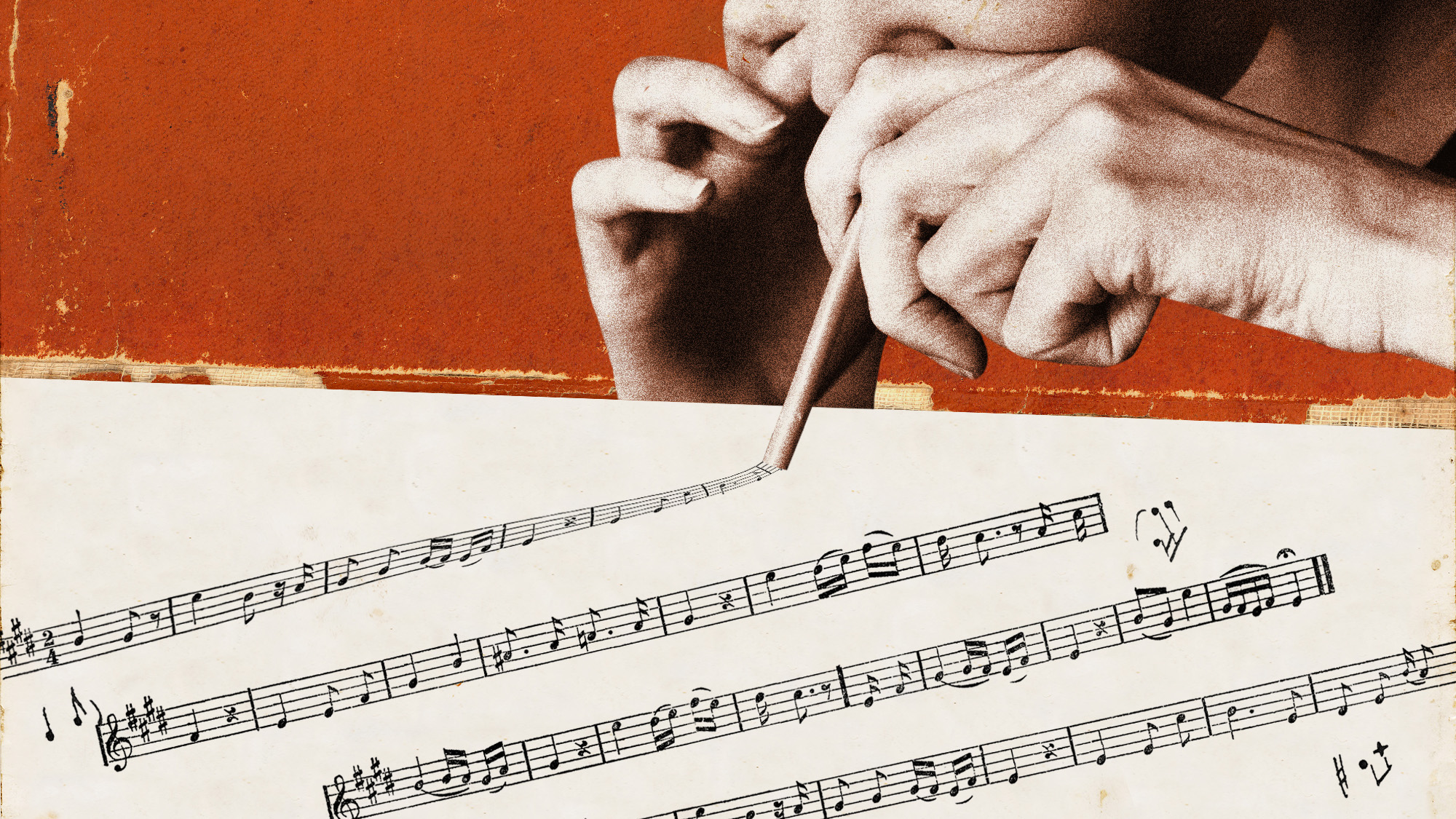Is Democracy under threat in Mexico?
President Andrés Manuel López Obrador's controversial election reforms have many worried


A free daily email with the biggest news stories of the day – and the best features from TheWeek.com
You are now subscribed
Your newsletter sign-up was successful
Tens of thousands of people gathered in Zócalo, Mexico City's central plaza, on Sunday to protest President Andrés Manuel López Obrador's recently-passed legislation that many believe will "threaten democracy" and "mark a return to the past," The Associated Press reports. Many of the protestors wore white and pink, the colors of electoral watchdog National Electoral Institute (INE), shouting slogans like "Don't touch my vote!" The scene echoed a similar march last year in November when people nationwide protested López Obrador's proposed constitutional amendment.
The legislation, which passed last week, aims to cut INE's staff and almost one-third of the agency's $760 million annual budget, "eliminating many of its units and nationwide offices in charge of issuing national identification cards to the country's 95 million adults at no cost," The Wall Street Journal says. The ID cards are required to vote in Mexico's elections. INE estimates that the laws would lead to massive layoffs, "including key technical staff in charge of organizing elections," the Journal writes. López Obrador's first attempt to pass constitutional amendments to replace the electoral agency failed in December.
"We are clearly witnessing a direct onslaught against the independence of Mexico's electoral system, against the country's democratic system," Lorenzo Córdova, the head of the INE, said in an interview about the earlier protests last fall.
The Week
Escape your echo chamber. Get the facts behind the news, plus analysis from multiple perspectives.

Sign up for The Week's Free Newsletters
From our morning news briefing to a weekly Good News Newsletter, get the best of The Week delivered directly to your inbox.
From our morning news briefing to a weekly Good News Newsletter, get the best of The Week delivered directly to your inbox.
Fernando Belaunzaran, a lawmaker from the opposing party who helped organize the recent protests, "argued the INE changes weakened the electoral system and increased the risk of disputes clouding the 2024 elections when López Obrador's successor will be chosen," Reuters writes. "Normally, presidents try to have governability and stability for their succession, but the president is creating uncertainty," Belaunzaran added. "He's playing with fire."
What are the commentators saying?
Critics say the laws threaten Mexico's progress since transitioning to democracy 25 years ago. Mexico was governed by a single party until a candidate from the opposition won the presidential election in 2000. "The creation of a strong electoral agency independent from the government in 1996 was a key step toward ending the single-party rule," the Journal explains.
Indeed, the INE is one of the most trusted institutions in Mexico, The Economist observes. "By nobbling it, Mr López Obrador makes it less likely that elections will be free and fair." He claims the INE's operational costs are excessive and its management corrupt, but this argument is "flimsy," says the Finacial Times. Really, he wants to "handpick a successor," hold on to a congressional majority, and get enough power to change the constitution, so he needs an electoral institute that's on his side. "López Obrador's attacks on the electoral system mirror those of other populists in the Americas, such as Donald Trump or Jair Bolsonaro," the FT writes.
The protests have prompted a response in the United States. Assistant Secretary of State for Western Hemisphere Affairs Brian Nichols tweeted that the U.S. "supports independent, well-resourced electoral institutions that strengthen democratic processes and the rule of law."
A free daily email with the biggest news stories of the day – and the best features from TheWeek.com
Rep. Michael McCaul (R-Tex.) and Sen. Robert Menendez (D-N.J.), chairmen of the House and Senate foreign relations committees, said that by approving the amendments, "the Mexican Congress has imperiled the future of its country's democratic institutions," per The Washington Post. "Returning Mexico to its dark past of presidentially controlled elections not only sets the clock back on its democracy but also U.S.-Mexico relations."
What's next?
"Opposition parties, INE's directors, and governors of many of Mexico's 32 states have said they would file constitutional challenges against the laws," the Journal reports. The head of INE said citizens are also expected to file thousands of injunctions because the laws violate their constitutional right to free and fair elections. He added that INE staff would file similar injunctions if they were fired.
Lawmakers from the rival party say the president's ruling party will have another opportunity to take over the INE by packing its governing council with loyalists, the Journal adds. "Four of the institute's 11 board members, including its president, will be named next month when their terms end."
Some ruling party legislators are doubtful that the overhaul of the electoral system will move forward, though, "as lower court judges can suspend the implementation of laws that have been challenged until the Supreme Court issues a ruling," the Journal says.
Theara Coleman has worked as a staff writer at The Week since September 2022. She frequently writes about technology, education, literature and general news. She was previously a contributing writer and assistant editor at Honeysuckle Magazine, where she covered racial politics and cannabis industry news.
-
 How to Get to Heaven from Belfast: a ‘highly entertaining ride’
How to Get to Heaven from Belfast: a ‘highly entertaining ride’The Week Recommends Mystery-comedy from the creator of Derry Girls should be ‘your new binge-watch’
-
 The 8 best TV shows of the 1960s
The 8 best TV shows of the 1960sThe standout shows of this decade take viewers from outer space to the Wild West
-
 Microdramas are booming
Microdramas are boomingUnder the radar Scroll to watch a whole movie
-
 Kurt Olsen: Trump’s ‘Stop the Steal’ lawyer playing a major White House role
Kurt Olsen: Trump’s ‘Stop the Steal’ lawyer playing a major White House roleIn the Spotlight Olsen reportedly has access to significant US intelligence
-
 ‘This is something that happens all too often’
‘This is something that happens all too often’Instant Opinion Opinion, comment and editorials of the day
-
 Japan’s Takaichi cements power with snap election win
Japan’s Takaichi cements power with snap election winSpeed Read President Donald Trump congratulated the conservative prime minister
-
 How realistic is the Democratic plan to retake the Senate this year?
How realistic is the Democratic plan to retake the Senate this year?TODAY’S BIG QUESTION Schumer is growing bullish on his party’s odds in November — is it typical partisan optimism, or something more?
-
 Dutch center-left rises in election as far-right falls
Dutch center-left rises in election as far-right fallsSpeed Read The country’s other parties have ruled against forming a coalition
-
 Has the Gaza deal saved Netanyahu?
Has the Gaza deal saved Netanyahu?Today's Big Question With elections looming, Israel’s longest serving PM will ‘try to carry out political alchemy, converting the deal into political gold’
-
 ‘Narcocorridos’: why Mexico is banning ‘drug ballads’
‘Narcocorridos’: why Mexico is banning ‘drug ballads’Under the Radar Authorities prohibit cartel-glorifying music genre – with limited success
-
 Brazil’s Bolsonaro sentenced to 27 years for coup attempt
Brazil’s Bolsonaro sentenced to 27 years for coup attemptSpeed Read Bolsonaro was convicted of attempting to stay in power following his 2022 election loss
